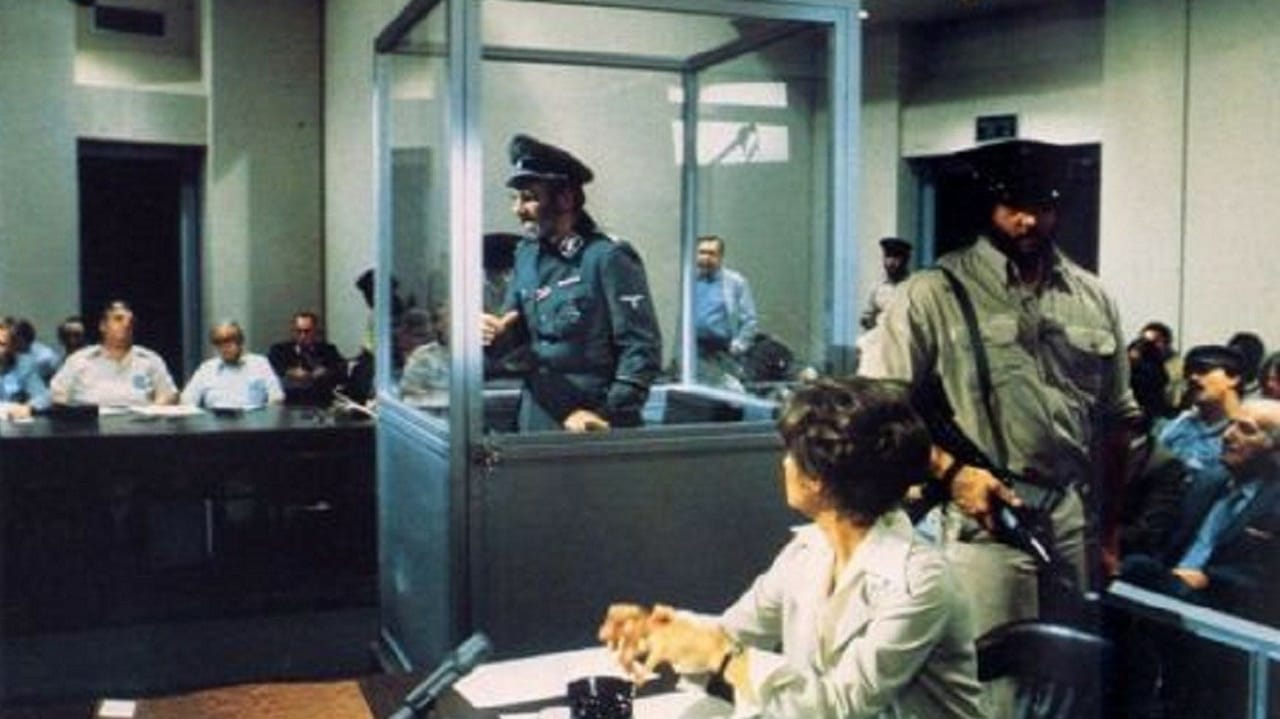by Elizabeth M. Ward
THE MAN IN THE GLASS BOOTH was filmed three years before the NBC television series HOLOCAUST brought the crimes of the National Socialist past to a new generation. Whilst it was by no means the only driving factor, the American television series nonetheless marked an important shift in public consciousness about – and affective responses to – the Holocaust and the persecution of Jews.
Do we have predefined roles for victims – and how do we respond when people do not exhibit the responses we might expect?
However, as THE MAN IN THE GLASS BOOTH reveals, the future of Holocaust memory and the ability of society to address the legacies of the past is not merely a question of knowledge, but also requires a willingness to listen. Arthur Hiller’s film asks, is there a place in society for survivor’s guilt, and to what extent does this require a collective response? To what extent might prominent trials also deflect from wider discussions about societal acquiescence and even culpability? Do we have predefined roles for victims – and how do we respond when people do not exhibit the responses we might expect?
By the end of the trial, (…) the film delivers its greatest shock
In THE MAN IN THE GLASS BOOTH, Maximillian Schell plays Arthur Goldman, a Jewish Holocaust survivor who now lives in Manhattan. Goldman is shown to be increasingly provocative, unpredictable and ill-mannered. Much of his erratic behaviour appears to stem from his conviction that he is being pursued by a former SS officer, Colonel Dorff. However, when Israeli secret agents arrive at his apartment, it is revealed that Goldman is, in fact, Dorff. Dorff is subsequently placed on trial for war crimes. During the trial, he is placed in a glass booth for his own protection with a microphone that gives the judge the power to silence him should Dorff’s testimony ‘become irrelevant’. His increasingly offensive comments enrage the courtroom. By the end of the trial, Dorff’s guilt is unquestionable, but the film then delivers its greatest shock: the man in the glass booth is not actually Dorff, but is indeed Goldman after all.
The revelation (…) forces the audience to keep re-evaluating the man on screen
The revelation that Goldman is Dorff and then that Dorff is in fact Goldman forces the audience to keep re-evaluating and to retrospectively critique the man on screen. The casting of Schell as both Goldman and (the fake) Dorff complicates this further. By the time of the film’s release, Schell had established himself as one of the most successful European actors working in Hollywood. Whilst the typecasting of actors is certainly nothing new, we nonetheless find an interesting, if not somewhat contradictory, pattern to Schell’s onscreen roles: in American film, he was cast almost exclusively as either a National Socialist perpetrator or as a German Jewish Holocaust survivor.
Maximilian Schell’s onscreen roles are explored in a new book accompanying the DFF exhibition

Schell’s Oscar®-nominated performance in THE MAN IN THE GLASS BOOTH raises important questions about how we remember the Holocaust in society and on film. These issues are explored in detail in the chapter, ‘Screen Identities. Maximilian Schell and THE MAN IN THE GLASS BOOTH’ in a new 320-page volume accompanying the current exhibition Maximilian Schell at DFF – Deutsches Filminstitut & Filmmuseum, Frankfurt (temporarily closed due to lockdown). In the book, seventeen authors explore Schell’s acting career from multiple perspectives, reflect on his impact in Hollywood and give behind the scenes insights into his work. They discuss Schell as an expert art collector, his work as a director, his great love for Shakespeare, his guest star appearances in Hollywood blockbusters of the 1990s, and his documentary films MY SISTER MARIA and MARLENE.
The short essays are accompanied by photographs and documents from Schell’s collections at the DFF archives. The book can be ordered in English here.
Elizabeth M. Ward is a lecturer for German Studies at the University of Hull. She researches East German cinema in its social and historical context, with a particular focus on the relationship between GDR cinema and the West. Her monograph East German film and the Holocaust will be published in 2020 with Berghahn Books.





